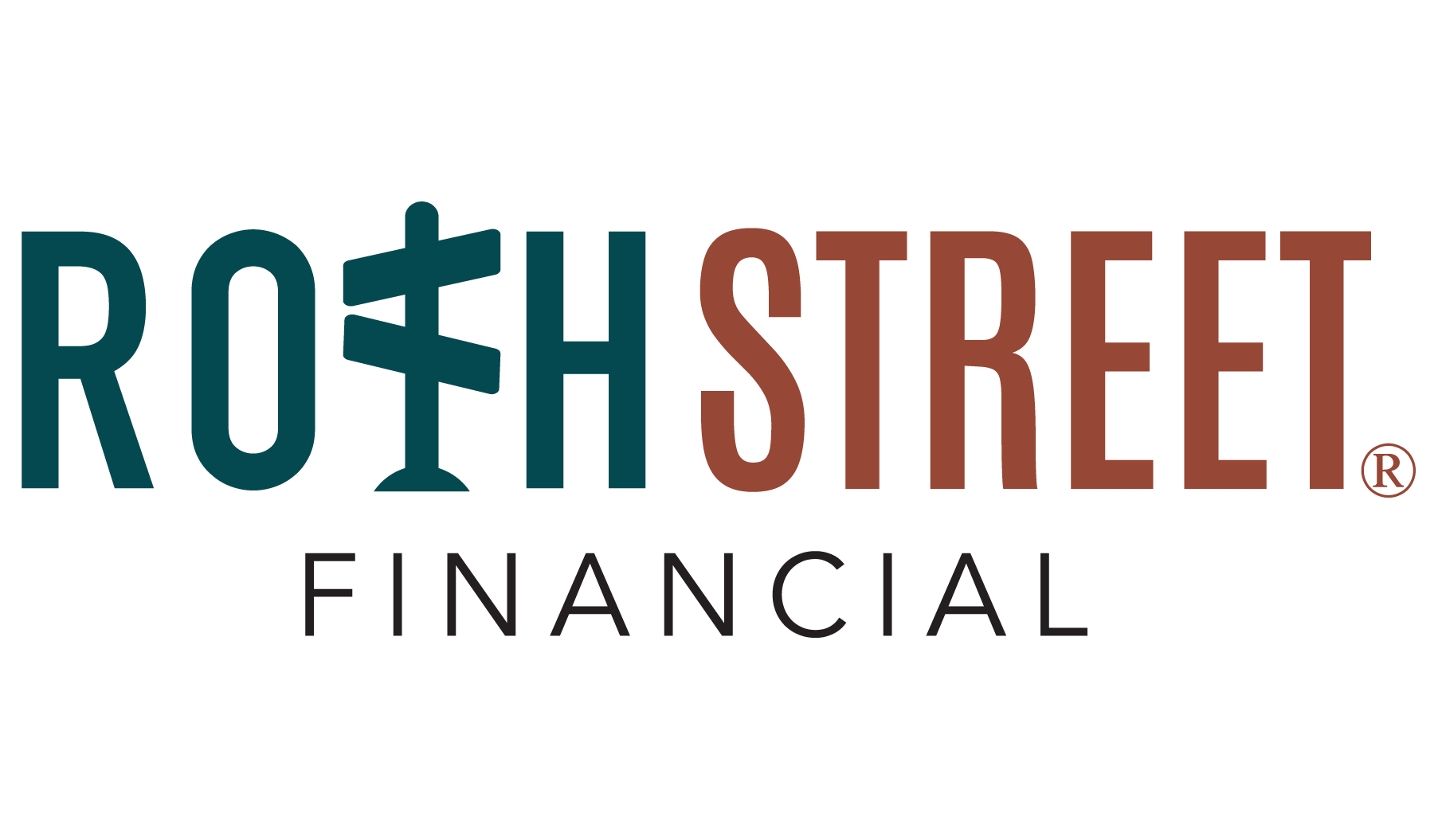Roth street financial
Services

Retirement in the modern world is no longer a matter of applying for Social Security and living off a modest savings account. Between dwindling federal funds and sometimes staggering inflation, you need some thick cushions if you’re going to head into your golden years without the stress.
A Better Way to Plan for Retirement in the Midwest
You’ll find plenty of retirement books, blogs, and tips out there. In fact, plenty of people assume that the wealth of information out there is better than working with a financial expert. But consider how you built your portfolio from the ground-up. Chances are, it’s worlds away from how your neighbors or relatives built their portfolio.
When you work with the right professional, you can get custom recommendations on how to secure your income during retirement. So, instead of relying on your savings account, which can quickly depreciate as the price of necessities continues to climb, you can pull revenue from different sources to safeguard your assets. Pensions, stock dividends, part-time jobs, rental checks from real estate—you likely have more opportunities at your disposal than you realize.
At Roth Street Financial, Joe Onopa helps people in Middleton, Wis., leverage their current holdings to build a brighter retirement future. Instead of doling out the same textbook advice, such as standard tips on how to diversify, he looks past the numbers to the individual and the family at the heart of the equation.
Boutique retirement firms like Roth Street are the best way to get better, more personal service. When it doesn’t always make sense to branch out into certain asset classes, particularly if you’re risk-averse, you can trust Onopa to guide you toward strategic decisions you can live with.
Services
Retirement Income Planning
Tax-Free Retirement
Wealth Management
Efficient Tax Planning
Assets Under Management
Investment Management

Retirement Income Planning
Despite the sheer volume of retirement resources available, from books to lectures to blogs, retirement is arguably more difficult than it’s ever been in recent history. Between inflation and the ever-changing economy, it’s not enough to simply save and hope for the best.
Today, financial professionals put more weight into retirement income planning. With this strategy, you maintain a similar financial structure during your retirement that you had when you still had a job. This is undoubtedly a smart decision for retirees, though it takes a little finesse to get it right.
How much do I need to retire in Middleton, Wis.?
If you ask the average person, you might hear a neat, round number in return, like a million dollars or around 80% of your pre-retirement income. But the actual answer is more complicated than that. (Even if it was as simple as “a million dollars”, it wouldn’t necessarily be easy for people to picture how they could save up for that!)
With retirement income planning, the idea is to pull money from different sources, such as Social Security, real estate rentals, stocks, or even a part-time job. So, if you always wanted to teach piano lessons, you might pay for a third of your monthly expenses from clients, a third from Social Security, and a third from your pension. As you near your retirement age, a financial advisor can help you branch out your revenue opportunities, so you won’t leave any stones unturned.
If you’re wondering how to plan your retirement income, the reality is that it looks different for everyone. At Roth Street Financial, advisor Joe Onopa helps clients in the Midwest discover the possibilities. What’s more, he doesn’t push clients into situations that would make them uncomfortable. So, if you’re hesitant to play the market or invest in real estate, you won’t be forced ‘into a scenario you’ll later regret. The best financial advisors will give you a realistic understanding of the potential gains and risks of each path, so you can confidently move forward.
Tax-Free Retirement
Is a tax-free retirement possible for the average person? This simple question, as you might imagine, doesn’t necessarily have a straightforward answer. When taxes are baked into nearly every financial transaction, the idea of exempting yourself may seem like little more than a fantasy.
If you want to learn how to have a tax-free retirement, there’s a lot to know about the federal, state, and local tax codes that ultimately play a big role in your bottom line. Luckily, the right financial advisor can give you a running start if you plan to conserve your resources for yourself and your family.
Retiring Tax Free in the Midwest
Tax laws, whether they pertain to deferments, trusts, or income brackets, affect your portfolio in different ways. Some, such as 1031 exchanges to delay capital gain taxes, are obvious, but others are much more subtle. In other words, you may be paying more than you need to without realizing it.
For many people, taxes are one long string of endless numbers and line items. After a few years, it eventually all starts to blend together. When you work with a financial expert, though, you can learn more about how to structure your portfolio more efficiently. At Roth Street Financial, Joe Onopa has the expertise to guide his clients down a more lucrative path.
Whether you invest largely in stocks, bonds, real estate, or rare coins, taxes are largely seen as an inevitability. With an advisor on your side, you might start to think differently about this. From charities to estate planning, you can discuss how different paths will affect you and your loved ones. For example, you might open a trust for your grandchildren, reducing your taxes in the meantime.
Regardless of your current wealth, if you live in Middleton, Wis., taxes impact how you spend your retirement. Whether you picture a lavish lifestyle or you’d prefer the simpler pleasures, a financial advisor can help you map out more reliable strategies to get there.


Wealth Management
For some people, wealth comes in one fell swoop, whether from an inheritance, single investment, or company buy-out. For most people, though, wealth is amassed over time. Bit by bit, people grow their portfolios with new accounts, opportunities, and assets.
Regardless of how you build your estate, though, the reality is that it can become difficult or even impossible to manage. You may not even realize just how unwieldy it’s become until your assets take a hit. If you don’t want to let it get to that point, a financial advisor can help you implement better wealth management strategies so you’re less likely to miss a critical event.
How Does Wealth Management Work?
If you hear the term wealth management in everyday conversation, it can refer to anything from prudent investing to coupon clipping. In financial circles, the principle is reserved for those with considerable wealth who need help keeping track of it all. (Consider how much time and effort it took to build your portfolio in the first place.)
Wealth management in Middleton can help you keep a handle on everything from trust planning to taxes to asset management. The strategy encompasses several financial strategies to essentially address the problem from all sides. So, if a new tax code will drastically affect a significant portion of your portfolio, you can rely on your advisor to help you make changes before you suffer unnecessary loss.
With an ever-changing economy and sometimes staggering inflation statistics, few people can afford to leave their wealth to chance. If you can barely find the time to list out all your assets, let alone their value or potential looming threats, Joe Onopa at Roth Street Financial helps clients in the Midwest take more control of their financial future.
At a boutique retirement agency, you’ll get the personalized advice you need to feel more confident about not only your financial comfort, but also your family’s. The more you leverage your current holdings, whether they’re tangible or intangible, the less you’ll have to worry about your legacy.
Efficient Tax Planning
Efficient tax management is a financial strategy that forces an individual to take a more granular look at their assets, income, and holdings. Income brackets, capital gains, exemptions: the objective is to factor it all in before officially submitting anything to the government. While it can be an intense process, it can also be one of the most important steps you take on the way to a more comfortable retirement.
How Does Efficient Tax Management Work in Middleton, Wis.?
If you’ve ever looked through the federal tax codes, let alone the state and local tax codes, you’re already familiar with the sheer weight of the rules, regulations, and exceptions. (Even the best CPAs in the country have to specialize in their fields because it’s too much to absorb!)
Of course, for most people, taxes are just a necessary evil. Year after year, you go through the same process, submit the same paperwork, and hold your breath until you hear the final outcomes. You likely already assume you’re completing your taxes as effectively as possible, especially if your financial situation doesn’t change much from year to year.
A financial advisor takes a very different view of your taxes. Their goal is to structure your taxes so you don’t leave a single penny on the table. What’s more, they have more context than a CPA will, because a CPA typically has no idea how your estate planning and investments will affect your retirement goals and family obligations. So, if it makes more sense to defer taxes in favor of time-sensitive investment opportunities, you’ll get the recommendations you need to avoid missing out on bigger gains down the line.
At Roth Street Financial, Joe Onopa has a handle on more than just the local, state, and federal tax regulations. He helps clients in the Midwest not only understand the basic tenets of better tax prep, but he takes them deeper into the line items, so there’s far fewer risks for error.


Assets Under Management
Real estate, equities, stocks, bonds, commodities: every asset category plays by its own rules. What’s more, these rules, much like the economy, are constantly up for grabs. Up-and-coming neighborhoods fall flat, entire industries crumble, and values can dissolve in the blink of an eye.
With the right financial advisor, though, there’s less guesswork in the whole equation. With better assets under management strategies, you’ll be planning with a professional who knows the markets.
What Are Assets Under Management Strategies?
Assets under management refers to the selection, structuring, and maintenance of all portfolio assets. The right financial advisor will consider not just the economic conditions before making recommendations, but also your general investment style and overall relationship with risk.
At Roth Street Financial, Joe Onopa has more than just fiscal smarts. As a financial planner, he gives his clients financial protection by lowering taxes, improving margins, and liquidizing funds for more immediate opportunities. With the help of uncommon strategies few people ever really have the time or wherewithal to master, he gives families and individuals in Middleton, Wis., more to work with. This way, when they retire, they have the assets they need to live the lifestyle they always imagined.
The best financial professionals balance gains with their client’s personal feelings. So, while you may be asked to step outside your comfort zone, whether that’s to buy a property or sell a relatively stable asset, you won’t be forced to make moves that ultimately make you uncomfortable.
If you live in the Midwest, there are plenty of directions you can go before you head into your golden years. Whether you plan to live on a tropical beach or off your current land, unpredictable economic headwinds and tailwinds threaten even the most prepared people. To reduce the number of threats, assets under management services can give you more guidance about how to navigate asset classes that can take a turn at any time.
Investment Management
Investment management is more than just studying the markets. To get the most out of your capital, you may need to think outside the box. If you can turn a profit from nearly anything, whether tangible or not, it’s easy for all of your assets to get tangled up in your portfolio. The more you add it to it, the easier it is to miss something.
How a Financial Advisor Helps with Investment Management
The right financial advisor takes time to learn your investment strategies. Some people play it close to the vest, carefully considering practically every avenue before settling on one. Others quickly become overwhelmed by the sheer number of potential opportunities, causing them to either make rash decisions or avoid the situation altogether.
Whether you strike out blindly and immediately strike gold or you’ve had your ups and downs, a financial advisor can wipe away the clutter so it’s easier to see where your portfolio is and where it should go. At Roth Street Financial, Joe Onopa helps clients in Middleton consider different approaches, explaining how both standard advice and unusual strategies apply to your portfolio.
For example, in some cases, it may make sense to consider diversifying your assets, also known as the most tried-and-true recommendation in the financial industry. If one investment takes a downturn, you’ll have others to fall back on. However, the reality is that your financial assets, much like your ultimate retirement goals, are unique to you and your loved ones. Sometimes, diversifying isn’t the best move — especially if you’re unfamiliar with the asset class or industry.
Leaning on a financial advisor for investment advice in the Midwest can make a major difference to not just the health of your portfolio, but also your retirement dreams. Whether that’s supporting the next generation or sailing around the world, financial professionals can open doors you may not have realized were even an option.


